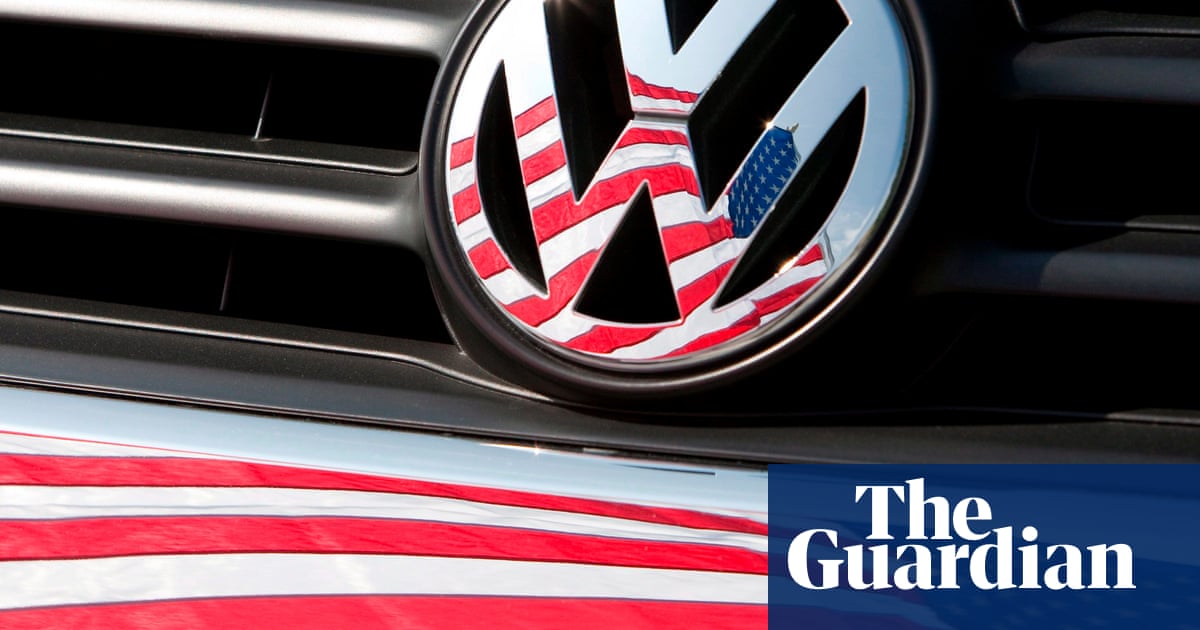Volkswagen’s Massive Investment Plans in the US: A Strategic Move Amid Tariff Challenges
In a bold statement that captures the attention of the automotive industry, Volkswagen, Europe’s largest industrial group, has declared its intent to make a “massive” investment in the United States. This initiative comes at a critical time as the company, which encompasses brands like Porsche, navigates through the complexities brought on by detrimental tariffs on auto imports.
Constructive Dialogue with the Trump Administration
Oliver Blume, the CEO of the Volkswagen Group, recently revealed that the company has been in direct discussions with Donald Trump’s administration. He characterized these talks as “constructive” and “fair,” indicating that Volkswagen is actively seeking a resolution to the tariff issues rather than leaving negotiations solely in the hands of Brussels. The company’s market capital rests at approximately £44 billion, highlighting its significant stake in the outcome of these discussions.
During an interview with Süddeutsche Zeitung, Blume shared insights about his engagement in Washington, mentioning that he has established a direct line to the US Secretary of Commerce, Howard Lutnick. While specifics of the negotiations have been kept confidential at the request of the administration, Blume conveyed a sense of optimism. He hopes that the planned investment will influence Trump’s decision regarding the 25% tariffs that were imposed in April.
The Stakes of Tariff Negotiations
Blume notes that discussions with US officials involve not just commerce matters but also reach the desk of the President. “So far, we’ve experienced absolutely fair, constructive discussions,” Blume emphasized. However, he acknowledged the complexities involved, making it clear that while he remained hopeful, he was bound by confidentiality regarding the details shared.
As talks between the EU and the US gear up, particularly with EU Commissioner for Trade Maroš Šefčovič meeting Lutnick soon, expectations loom large. Many analysts predict that a baseline tariff nearing 10% will persist beyond the July expiration of Trump’s 90-day pause on tariffs. These discussions are pivotal, considering how they may shape Volkswagen’s operational strategies moving forward.
Future Investments and Strategic Collaborations
The Volkswagen Group remains steadfast in its commitment to investing in the US market. Blume indicated that the company aims to deepen its partnership with American electric vehicle manufacturer Rivian, promising “further, massive investments.” This move reflects an understanding of the shifting landscape of the automotive market and an intention to remain competitive in the evolving electric vehicle sector.
While tariff talks are ongoing, Blume sees the planned investments as a vital component in shaping the future of Volkswagen’s operations in the US. The company is focusing on creating solutions that not only benefit their interests but are also universally applicable.
Competitive Challenges and Strategic Responses
This year has proven to be particularly challenging for Volkswagen as it grapples with the repercussions of intensified competition, especially from Chinese electric vehicle manufacturers, who have seen exponential growth in the EU. The company faces mounting pressure, particularly in light of the tariffs, which would disproportionately affect Porsche. Unlike other car models, Porsche vehicles primarily manufactured in Germany would incur a significant financial impact under existing tariffs.
Blume pointed out that the German auto sector’s failure to adequately prepare for the competitive wave from China illustrates a broader issue of complacency in the industry. This recognition of a changing landscape is critical as Volkswagen faces plans to cut 35,000 jobs by 2030 in an effort to streamline operations. Just recently, the company reported a staggering 30% drop in net profits compared to the previous year, a result of soaring production costs and decreased sales in the Chinese market.
An Evolving Electric Vehicle Strategy
Despite the challenges, Blume remains optimistic about Volkswagen’s electric vehicle strategy. He highlighted plans for launching competitively priced models, including vehicles from Volkswagen, Cupra, and Skoda, expected to retail for around €25,000. Additionally, the company is working on an entry-level electric car, designated as the “ID.EVERY1,” which aims to capture a broader customer base.
However, Blume acknowledged the painful reality of necessary job cuts while emphasizing the importance of taking decisive action for the company’s long-term survival. The challenges posed by the global market, including the rising prevalence of Chinese electric vehicles in Europe, demand rapid adaptation and innovation from the traditionally strong German automobile sector.
Navigating Trade Dynamics
As Volkswagen prepares to navigate the complexities of international trade and tariffs, the overarching sentiment is one of urgency and necessity. The German automotive industry is under pressure to evolve, compelled by the rapid changes in consumer preferences and competitive dynamics.
Blume’s candid acknowledgment of past mistakes, such as resting on laurels while the world evolves at breakneck speed, reflects a renewed mindset aimed at fostering innovation and strategic foresight. In an industry facing unprecedented changes, Volkswagen understands the imperative to act swiftly and decisively to secure its future in a landscape defined by both opportunity and competition.


